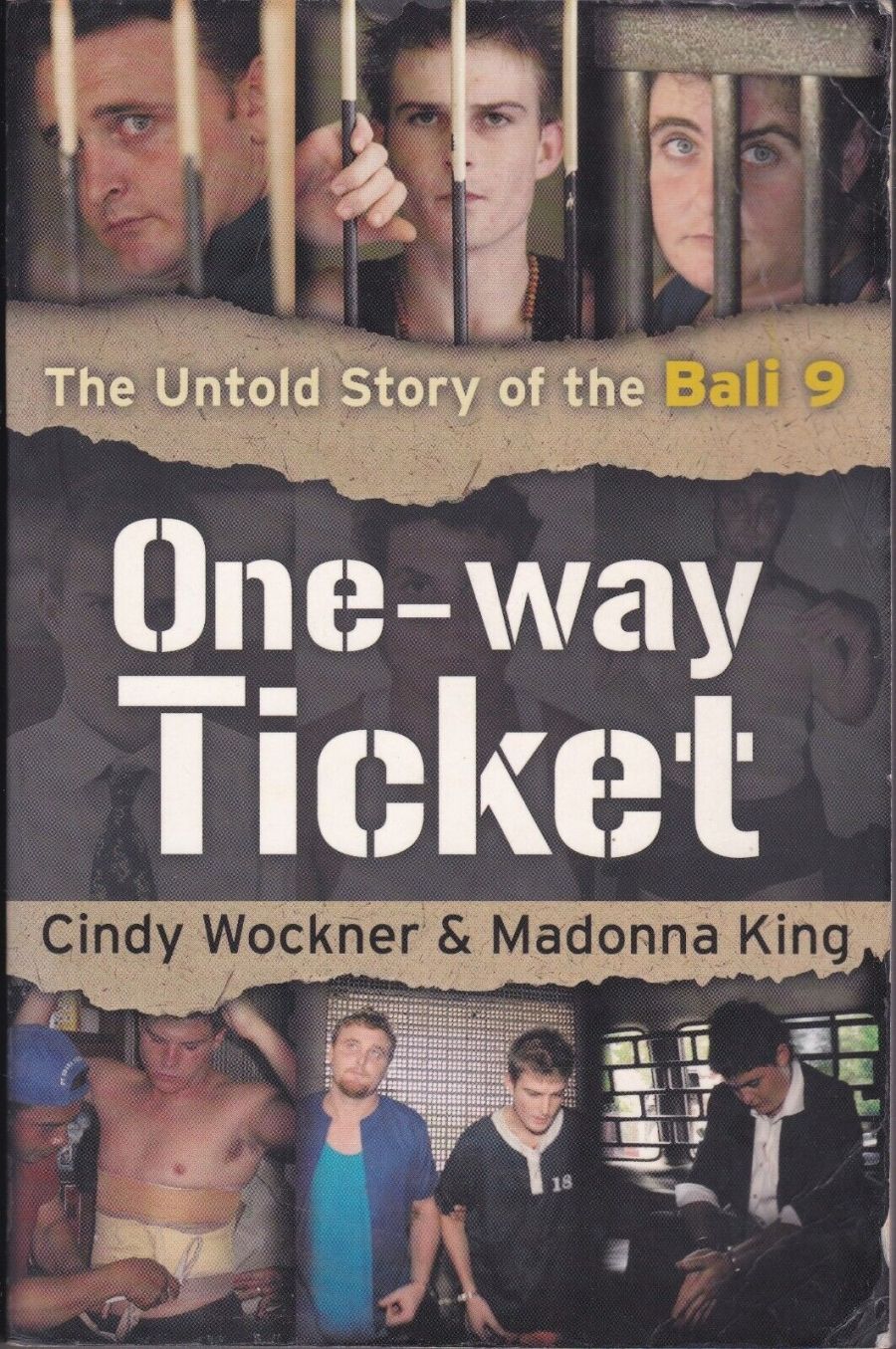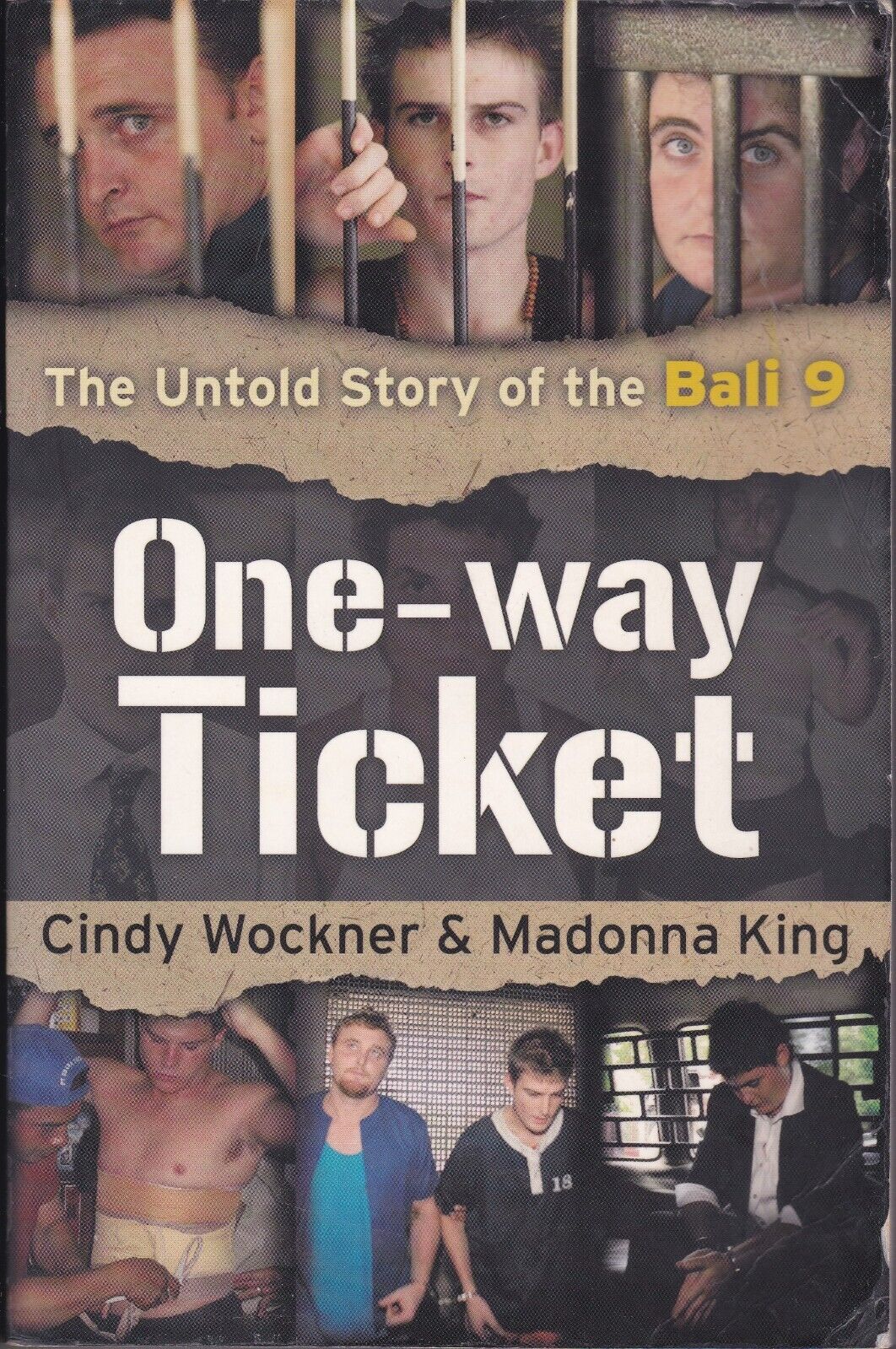
- Free Article: No
- Contents Category: Non-fiction
- Review Article: Yes
- Article Title: Cautionary trail
- Online Only: No
- Custom Highlight Text:
When it was reported in 2005 that nine Australians had been arrested in Bali on charges of trafficking heroin, the public response was scornful and incredulous. In the wake of the media saturation of Schapelle Corby’s trial, such blatant attempts to flout the severe drug laws of Indonesia, with quick cash the only apparent incentive, seemed incomprehensible. As the story filtered through the press, a division appeared in ‘The Bali Nine’, as they were swiftly dubbed, between the mules – Martin Stephens, Renae Lawrence, Scott Rush and Michael Czugaj – who were apprehended with more than eight kilograms of heroin strapped to their bodies, and other members of the group, most of whom had not left the country before. These were Andrew Chan and Myuran Sukumaran, identified as the ringleaders of the operation, and Matthew Norman, Si Yi Chen and Tan Duc Thanh Nguyen, who were arrested in their hotel room with more than 300 grams of heroin. The mules claimed that Chan and Sukumaran had made repeated threats against their families should they not co-operate; and that they and Matthew Norman were innocent victims of an international drug-trafficking ring.
- Book 1 Title: One Way Ticket
- Book 1 Subtitle: The untold story of the Bali nine
- Book 1 Biblio: HarperCollins, $29.95 pb, 257 pp, 0732283469
- Book 1 Cover Small (400 x 600):

- Book 1 Cover (800 x 1200):

One Way Ticket certainly allows for the images of Rush, Czugaj, Norman, Lawrence and Stephens as pawns in a much larger operation; the pitiful naïveté of Czugaj, who accepted at face value the offer of a free holiday from his loose acquaintance Nguyen, is the most poignant. However, the book never fully endorses the claim that the mules acted under duress. Indeed, some facts indicate otherwise: Chan had previously visited Bali with Norman and Lawrence, the latter smuggling heroin successfully into Australia only seven months prior to her arrest. Were the threats so great that neither could contact the authorities prior to the April operation?
However, several members of the Bali Nine were evasive during their trials, often denying statements that they had previously made to police, or claiming to have forgotten events. Indeed, it appears that the authors had difficulty clarifying certain facts, as some queries raised in the book are left unresolved.
One Way Ticket provides a balanced examination of the issue of the involvement of the Australian Federal Police (AFP) in the arrests of the nine people. This was one of the most controversial elements of the Bali Nine story, with some arguing that their actions had deliberately exposed the accused to the death penalty. The AFP had been monitoring the activities of the ringleaders for months and had enlisted the assistance of the Indonesian National Police to provide constant surveillance of the group while in Bali, with the goal of discovering Chan’s supplier and thus moving up the hierarchy to the source of the heroin.
The AFP argues that it acts uniformly in all countries and that, while Australia officially opposes the death penalty, to refuse to deal with a nation purely on such a principle ‘would mean no assistance for our crime bodies from several countries now known to act as transit centres for drugs destined for Australia’. These already overextended crime bodies have sixty-five personnel monitoring illegal activities in thirty-one cities.
If the constant war against the mammoth trade in arms, drugs, and humans that plagues Indonesia is typical of many South-East Asian countries, so too are the merciless penalties for such activities. Singapore, Thailand, Cambodia, and Vietnam all enforce the death penalty for drug trafficking. While Chan and Sukumaran are the first Australians to be sentenced to death in Indonesia, the seven remaining members of the Bali Nine, who all faced life sentences (some of which were reduced on appeal in late April), join a recent spate of young Australians caught in South-East Asian countries with illegal drugs. In each instance, there have been calls for the government to intervene and to allow for citizens to be tried and punished in Australia. While a prisoner-swapping treaty exists with Thailand and activists are attempting to broker a similar agreement with Indonesia, John Howard has indicated that it is not the place of the government to protect nationals acting illegally overseas from the penalties that the host country may carry.
As brazenly reckless as the actions of the Bali Nine were, the penalties they are facing are horrific. For those who have dodged the death penalty, the prospect of life in an Indonesian jail is as harrowing for their families as it is for them. Though the book offers detailed insight into the lives of the nine young people (Lawrence and Stephens in particular), the real reasons each was in Bali are never explicitly stated, though suggestions are made. South-East Asia has long served as Australia’s holiday playground, a destination for unrestrained hedonism. One Way Ticket serves as a cautionary tale for all travellers.


Comments powered by CComment